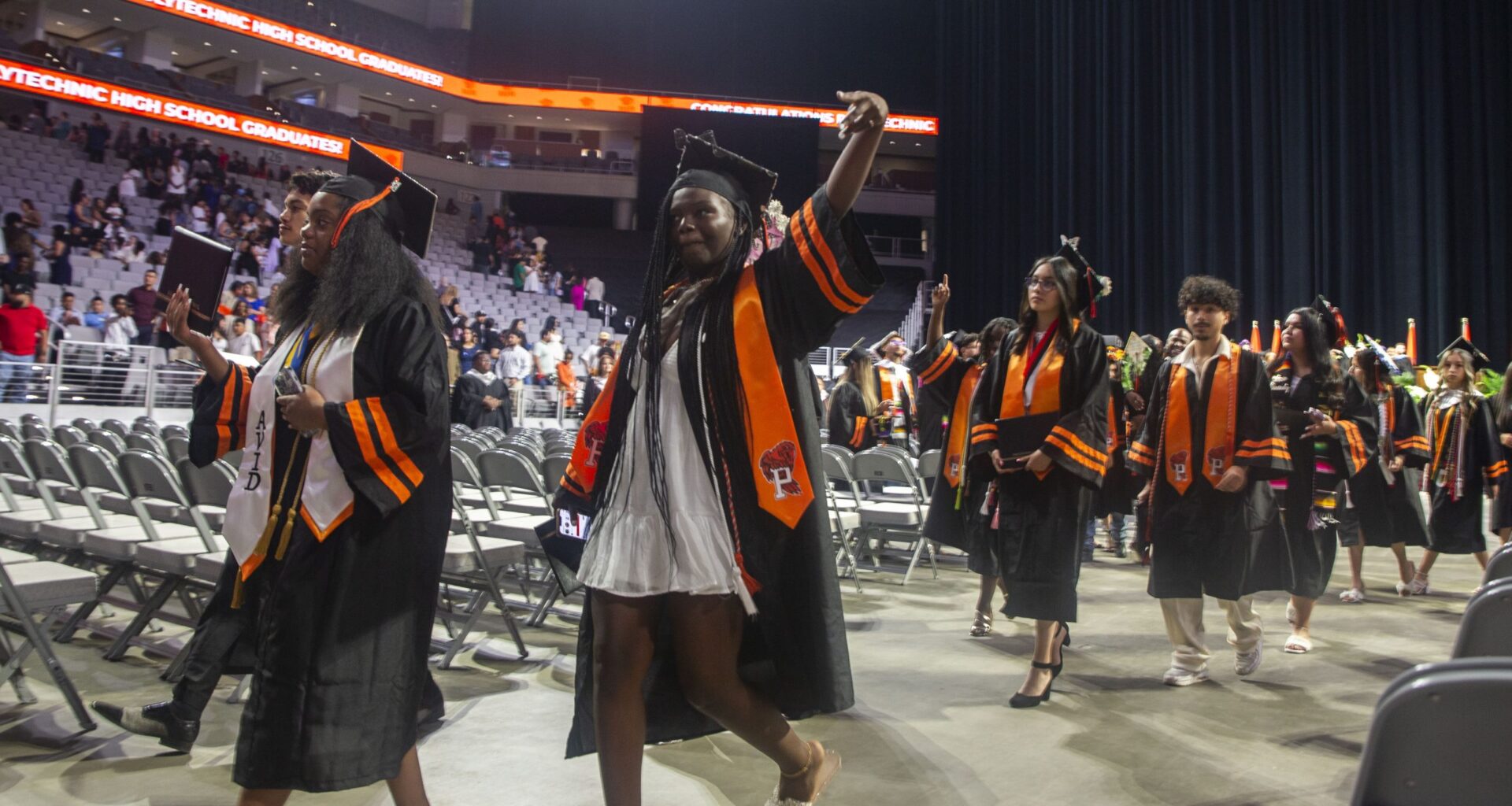Fewer than 1 in 5 Fort Worth students earn a postsecondary degree within six years of graduating high school, according to a new report released Sept. 15.
State data also shows that about 1 in 5 students do not graduate from a high school within six years.
The nonprofit Fort Worth Education Partnership’s analysis follows nearly 30,000 students who entered eighth grade in any public school serving the city, which includes charters and a dozen districts, between 2011 and 2013. The report is based on data from the Texas Education Agency and Texas Higher Education Coordinating Board, which tracked them through high school and into higher education over six years.
Findings include:
- Most high school graduates aspire to higher education.
- More than half of Fort Worth students pursuing higher education in Texas started at a two-year college.
- Six years after high school, 5% earned an associate degree and 14% earned a bachelor’s degree.
Partnership president Brent Beasley called the findings a “civic and moral crisis” that has ramifications on the city’s workforce and economic needs.
“Most of our children in Fort Worth are not progressing their education beyond high school and many are not even making it to high school graduation,” Beasley said. “The door is starting to close early for them on the opportunities that are available to them, to access the lives that they want and they serve.”
Data from the Tarrant To & Through Partnership, also known as T3, shows 39% of Tarrant County adults possess an associate degree or higher. However, 65% of jobs require a postsecondary certification or college degree.
Not having a degree or industry credentials impacts a person’s livelihood. The median bachelor’s degree holder earns $32,000 more annually than someone with only a high school diploma, according to the Federal Reserve Bank of New York.
Over a lifetime, that can mean a person earning $1 million less without a credential, according to T3.
Among students who did finish high school, the majority showed clear aspirations for higher education, according to the partnership report. About 58% enrolled in a Texas college or university, and another 9% went out of state.
Leaders across Fort Worth need to determine how they can ensure students fulfill their aspirations, said Leila Santillán, the partnership’s chief operation officer.
“I hope we can get more kids there because it shows a strong desire and a clear value in long-term life values. I hope we don’t lose sight of that,” she said.
But the gap between enrollment and completion is wide.
Just 14% of Fort Worth students earned a bachelor’s degree and 5% an associate degree within six years of graduation.
That leaves most young adults in Fort Worth without a credential and with only a 12% chance of earning a living wage, the report found.
In Tarrant County, a single adult needs at least $48,200 a year to cover basic expenses, and a family of four with two working parents requires more than $108,600, according to the Massachusetts Institute of Technology.
The report framed the outcomes as both an economic challenge and a human one. Beasley hopes the findings spark conversations across multiple fronts, he said — from K-12 preparation to advising community college completion.
“There’s a lot of different points all along the way that involve lots of different constituencies,” Beasley said. “I would hope this starts a conversation among all those different folks along the way.”
Beasley and Santillán emphasized attaining a college degree does not begin in high school — it’s a process that stretches to a student’s first days of elementary school.
Low reading rates beget low high school completion rates and degree attainment, they said.
“We have to do a better job of preparing our students from an early age,” Beasley said. “That’s a long game, but if we do that then we have a chance to see better results 10 or 15 years from now.”
Disclosure: The Sid W. Richardson Foundation, which supports the Fort Worth Education Partnership, has been a financial supporter of the Fort Worth Report.
News decisions are made independently of our board members and financial supporters. Read more about our editorial independence policy here.
Jacob Sanchez is education editor for the Fort Worth Report. Contact him at jacob.sanchez@fortworthreport.org or @_jacob_sanchez.
Matthew Sgroi is an education reporter for the Fort Worth Report. Contact him at matthew.sgroi@fortworthreport.org or @matthewsgroi1.
Related
Fort Worth Report is certified by the Journalism Trust Initiative for adhering to standards for ethical journalism.
Republish This Story
Republishing is free for noncommercial entities. Commercial entities are prohibited without a licensing agreement. Contact us for details.
